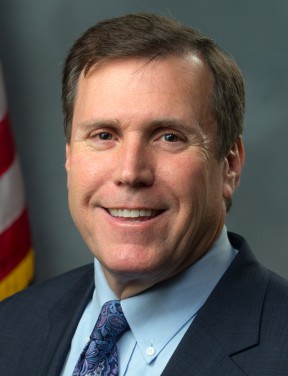 I have always taught my children not to make procrastination a habit, but in the Legislature, procrastination is part of the culture.
I have always taught my children not to make procrastination a habit, but in the Legislature, procrastination is part of the culture.
After wrapping up my first legislative session, I was struck by the lack of transparency and debate due to an end-of-session procedure called “gut and amend.”
This controversial legislative maneuver is when a lawmaker takes an existing bill that has already been approved by several committees or even one house of the Legislature, then strips the contents and adds in new unrelated bill language.
The “gut and amend” process is the ultimate eleventh-hour attempt to circumvent the legislative process to pass bills that have already failed or purposely have not been brought up, to increase the chances of success. Often “gut and amend” bills are abused and run by special interests in an effort to thwart public review.
In some cases, last-minute bills are introduced when there is a fee or tax involved. Senate Bill 359 (Corbett) was originally a bill that would allow for an exemption of the California Environmental Quality Act (CEQA) as it relates to urban infill projects. The bill then morphed into a smog-reduction fee that will be paid by motorists to fund the smog check program administered by the Bureau of Automotive Repair.
If policy ideas are controversial and would normally struggle their way through the legislative process, a “gut and amend” is the perfect tool to evade public scrutiny.
Assembly Bill 1024, authored by Assembly Member Nora Campos (D-San Jose), originally was intended to remove barriers to cooperative ownership of housing. This bill was transformed by its new author, Assembly Member Lorena Gonzalez (D-San Diego), during the final week of session to authorize the Supreme Court to allow an applicant, who is not lawfully present in the United States, to practice law.
Waiting until the last minute is a far-too-common trend among the majority party in which they hope their controversial measure won’t stir up as much opposition, since their colleagues and the public won’t have enough time to read their new proposal.
This process is a great example of why Californians have lost faith in the Legislature. This end-of-session scheme ought to be ended, and instead the Legislature should focus on supporting more transparent and accountable practices.
One of the biggest concerns I have with this procedure is it weakens the opportunity for both parties to read and analyze the bills that are presented before them. It is frightening that lawmakers are asked to cast a vote on bills they have barely any time to read, and zero time to study.
I believe all Californians deserve to see more transparency in the state Capitol. Earlier this year, I co-authored Assembly Constitutional Amendment 4, which was a proposal to require more openness and accountability in public policy.
This constitutional amendment would require a bill to be in print for 72 hours before the Legislature can act upon it. This would provide the public and legislators with a more realistic time frame to evaluate bills and address concerns.
Reform is needed for the Legislature to recapture the public’s trust. Allowing the people to conduct a thorough review of the legislative proposals before any vote takes place and communicate with their representative will create a more robust democracy.
It is time we stop excluding the public and stop conducting last-minute, back-room deals to decide the future course of our state.
The Legislature cannot predict all of the problems our state faces in the future, but we can promote cleaning up unfavorable processes such as “gut and amend.” We can be ready to react in a timely manner without sacrificing transparency and openness.
As if the end of session weren’t chaotic enough, it is detrimental to our taxpayers when lawmakers are asked to cast a vote on hundreds of bills per day without fully understanding what they are voting for or the ramifications. Until we work toward improving these processes, Californians will be subject to misguided proposals crafted behind closed doors that serve special interests, not the people’s interests.
Assemblyman Scott Wilk, R- Santa Clarita, represents the 38th Assembly District, which encompasses Simi Valley, the northern section of the San Fernando Valley and most of the Santa Clarita Valley.
Time to End 'Gut and Amend' | Commentary by Assemblyman Scott Wilk